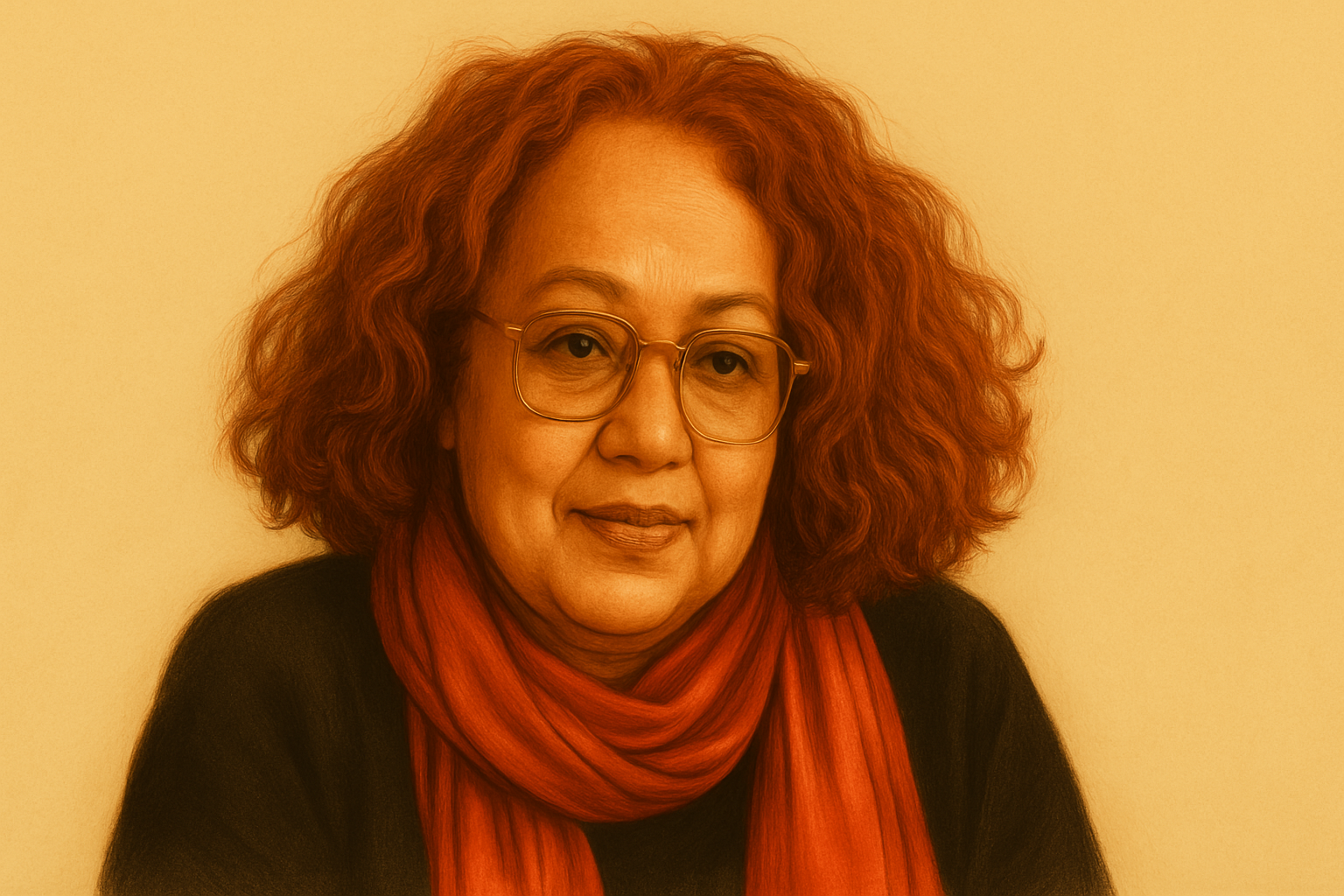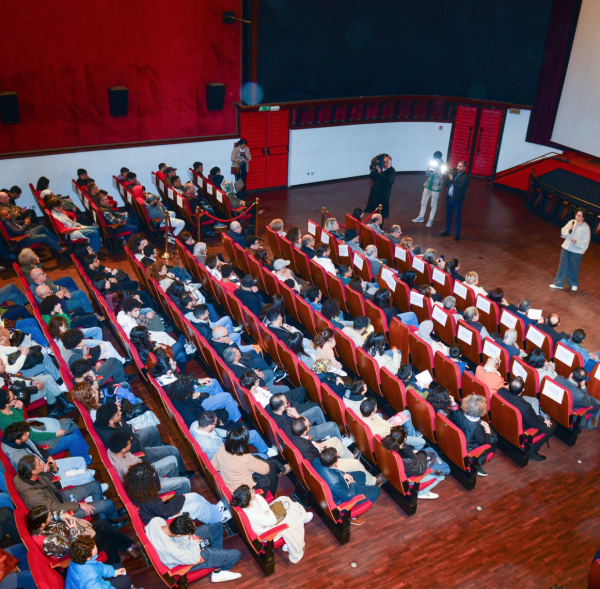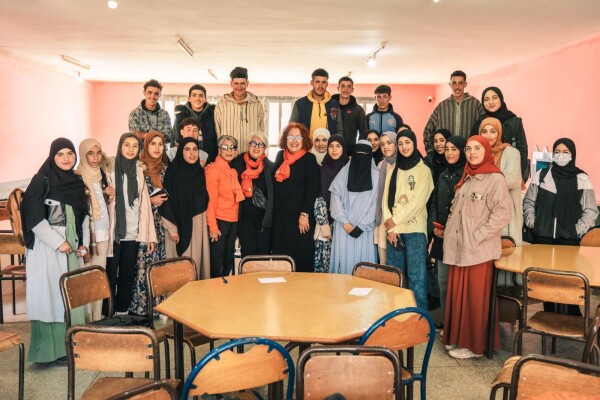
In a place where films need state approval and public space is contested, Fadoua Maroub keeps rolling. One screening, one square, one win at a time.
“Cinema is a tool for social cohesion,” says Fadoua Maroub, founder and president of the Moroccan Association des Rencontres Méditerranéennes du Cinéma et des Droits de l’Homme (ARMCDH), established in 2010. “Our idea from the beginning was to bring together the worlds of cinema, human rights and democratic values.”
“Initially we wanted to run a human rights cinema festival but we realised that we needed something longer-term with ongoing public engagement on human rights issues. That’s how we came up with the idea of weekly cinema screenings and debates every Thursday in partnership with the Moroccan Film Centre in Rabat. There was so much interest we had to organise a second screening on Sundays too,” she recalls.
ARMCDH has also organised annual Sleepless Night cinema screenings in central Rabat since 2012, projecting films from sunset to sunrise.
“We’ve had over 1,000 people gathered in the square of the National Library, sitting on carpets under quilts watching these films—men, women, young, old, children. The first time we held the event was just after the Arab Spring when many public spaces were still closed. It’s important for us to have this mix of people and this respect for different opinions. The next day we host debates on the themes raised in the films,” she says.
ARMCDH received the first of two grants from EED in 2014, which enabled the continuation of its screenings in Rabat, expanded its geographic reach to other cities and supported a project focused on children. The funding also allowed them to hire their first paid staff.

ARMCDH
As Fadoua explains, over time ARMCDH realised the need to deepen the relationship between the worlds of cinema and human rights, enabling both sectors to learn from one another.
The organisation began working in child detention centres, screening one film per week over two years in facilities in Agadir, Béni Mellal and Casablanca.
“The idea behind the project was to help children and young people express their ideas and emotions through film. We saw this as strategic—a first step towards preventing violence. When you can express your emotions or ideas to someone else, you begin to unblock the violence,” she explains.
Today, while the Thursday screenings—shifted online during the Covid-19 pandemic—remain a key activity, ARMCDH’s primary focus is now using cinema for human rights advocacy. “This is our flagship activity,” she notes.
The organisation received EU funding to produce three documentaries: one on penal code reform concerning juvenile detainees; another on proposed legislation to allow women to terminate pregnancies; and a third on civil society advocacy to rebuild villages after the 2023 earthquake. Each film will be submitted to both national and international festivals.

ARMCDH
ARMCDH also conducts research on the intersection of cinema and human rights. In December 2023, it published a first report examining the legal and institutional framework of the Moroccan Film Centre, evaluating its adherence to human rights principles and governance.
In January, ARMCDH launched a new report on violence against women in the Moroccan film industry, revealing that 80 percent of women surveyed had experienced physical, psychological or other forms of gender-based violence. The report highlights the vulnerability of women in the sector due to the lack of a legal framework.
Fadoua acknowledges that researching the film industry is difficult—“a sector with a lot of money and few rules”—but she insists that cinema and human rights must continue to collaborate.
She continues to work on a voluntary basis for ARMCDH while also serving as a university professor. The organisation has a small paid team and receives minimal state funding.
Still, the workload can feel like a full-time job, as was the case last summer when the team lobbied for changes to new cinema legislation. Fadoua admits their advocacy was less successful than hoped.
According to legislation enacted in December 2024, all film directors must now obtain state approval for their films to be shown at international festivals. ARMCDH will also face significantly higher fees for screening international films due to a new requirement to go through the national film distributor—raising questions about the future of its weekly Thursday screenings.
Fadoua is undeterred. She is now developing a podcast series on violence against women in the film industry, organising related debates at festivals and offering training and awareness-raising sessions for professionals.
She also hopes to expand the organisation’s earlier work in child detention centres. “We believe cinema offers a way out. We plan to provide three months of training and film equipment so the children can make their own films. We want to help them unlock their ability to express themselves—their ideas and their emotions.”
ARMCDH is also working with civil society leaders in three pilot regions, supporting youth bodies as part of participatory democracy programmes and advising local councils on how to rethink cultural policy—particularly regarding film.
She admits it’s a long journey. “We want to do what we can to make cinema a tool to save lives,” she says.
This article reflects the views of the grantees featured and does not necessarily represent the official opinion of the EED.